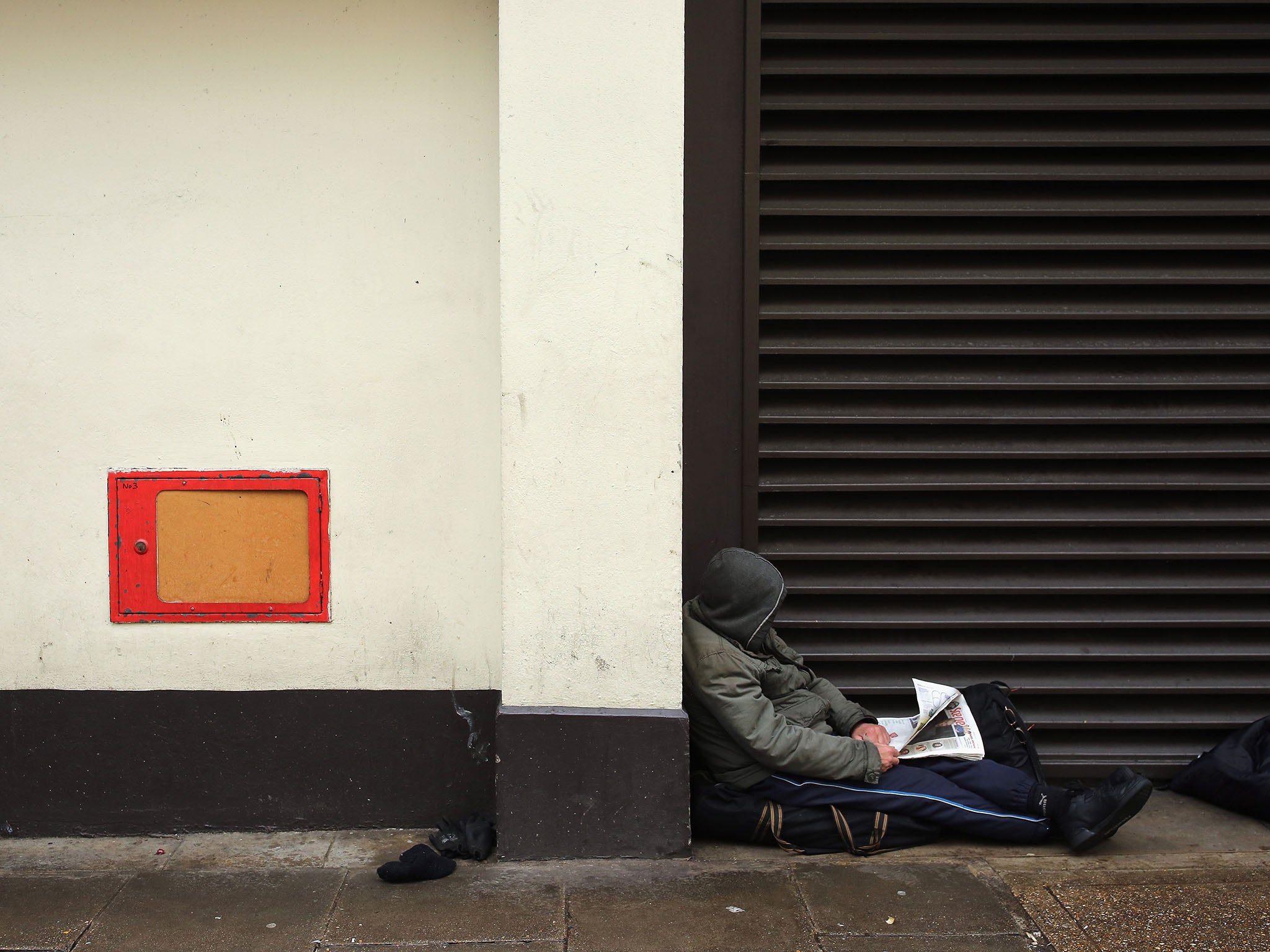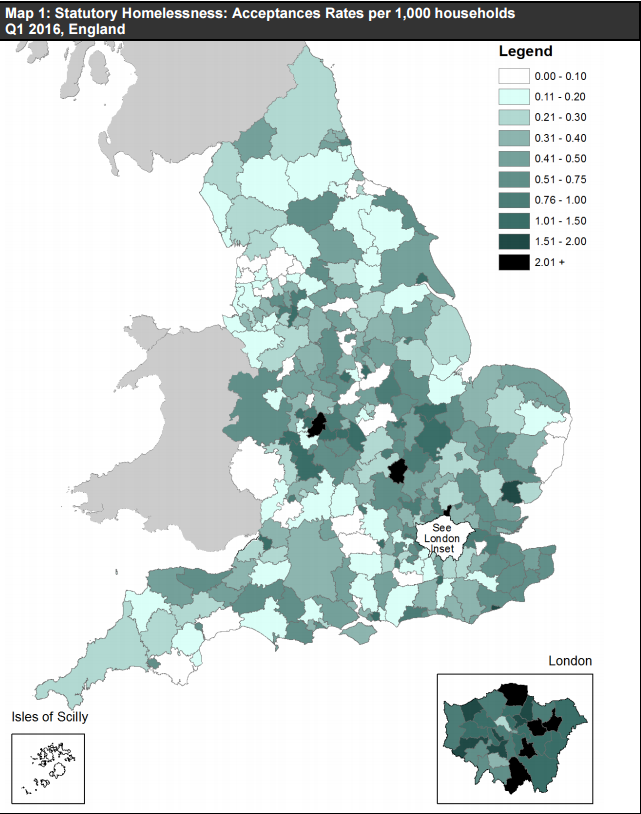Homelessness in England rises 54% since 2010
Former shadow housing minister says housing crisis had role in Brexit

Homelessness among English households has risen 54 per cent since 2010, according to government figures.
A report, released by the Department for Communities and Local Government, reveals there were 57,750 acceptances in financial year 2015-16 – a rise from 54,430 (6 per cent) from 2014-15.
This represents the sixth consecutive annual rise, with households becoming homeless in London increasing to 17,530 (9 per cent) in the last year alone and 58,000 households across the whole of England.
Campbell Robb, Shelter’s chief executive, called the statistics “shocking”.
He said in a statement: “Sky high housing costs mean that every day at Shelter we hear from families struggling to keep their heads above water, knowing that just a small change in income could send them spiralling towards homelessness.

“We’re here to help people when the worst happens, but we can’t do this alone. Sadly, it is those already living on a financial knife-edge who suffer the most when the country hits uncertain times, so it’s vital the government makes sure families can get the support they need to keep a roof over their heads.”
John Healey, former Shadow Secretary of State for Housing and Planning, underlined the role of the housing crisis in the UK's vote to leave the EU.
He told The Independent: “The gap between haves and have-nots was the breeding ground for Brexit, and these new figures today show that the number of homeless households has risen by an astonishing 54% since 2010.

“If Conservative leadership candidates want to prove their one nation credentials, they can start by making clear that homelessness hostels and other supported accommodation will be excluded from George Osborne’s crude housing benefit cuts, which are set to make the scandal of high homelessness worse by bankrupting thousands of hostels across the country.”
Temporary accommodation also came under further strain, with the number of households forced into uncertain living conditions rising to 71,540, or a 49 per cent increase since 2010. At the same time, the number of preventative measures taken by local authorities dropped by 6,900 in the last year.

Jon Sparkes, chief executive of Crisis, warned a reduced level of prevention could have long term consequences.
He added: “We are also concerned by the fall in the number of people prevented from becoming homeless in the first place. These trends should be going in the opposite direction.
“Prevention is always better than cure, and for homeless people this is especially so. It has already been shown to work in Wales, where it has dramatically reduced the need for people to be re-housed.
“According to the latest figures, where councils intervened to prevent people from becoming homeless in the first place, they were successful in two thirds of cases.”
Bob Blackman, a backbench Conservative MP, tabled the Homelessness Reduction Bill on Wednesday. If passed, it will force councils to clearly demonstrate they have offered meaningful advice, and may also introduce a 56-day period before someone is made homeless.
Dominic Williamson, St Mungo’s Executive Director of Strategy and Policy, said it was “a momentous opportunity” to improve the current legislation.
Earlier this year, it was revealed rough sleeping on London’s night buses has increased 121 per cent in the past four years.
A person is defined as "statutorily homeless" by the government if they no longer have a legal right to occupy their accommodation, or if, for example, they are at risk of violence.
Join our commenting forum
Join thought-provoking conversations, follow other Independent readers and see their replies
Comments
Bookmark popover
Removed from bookmarks